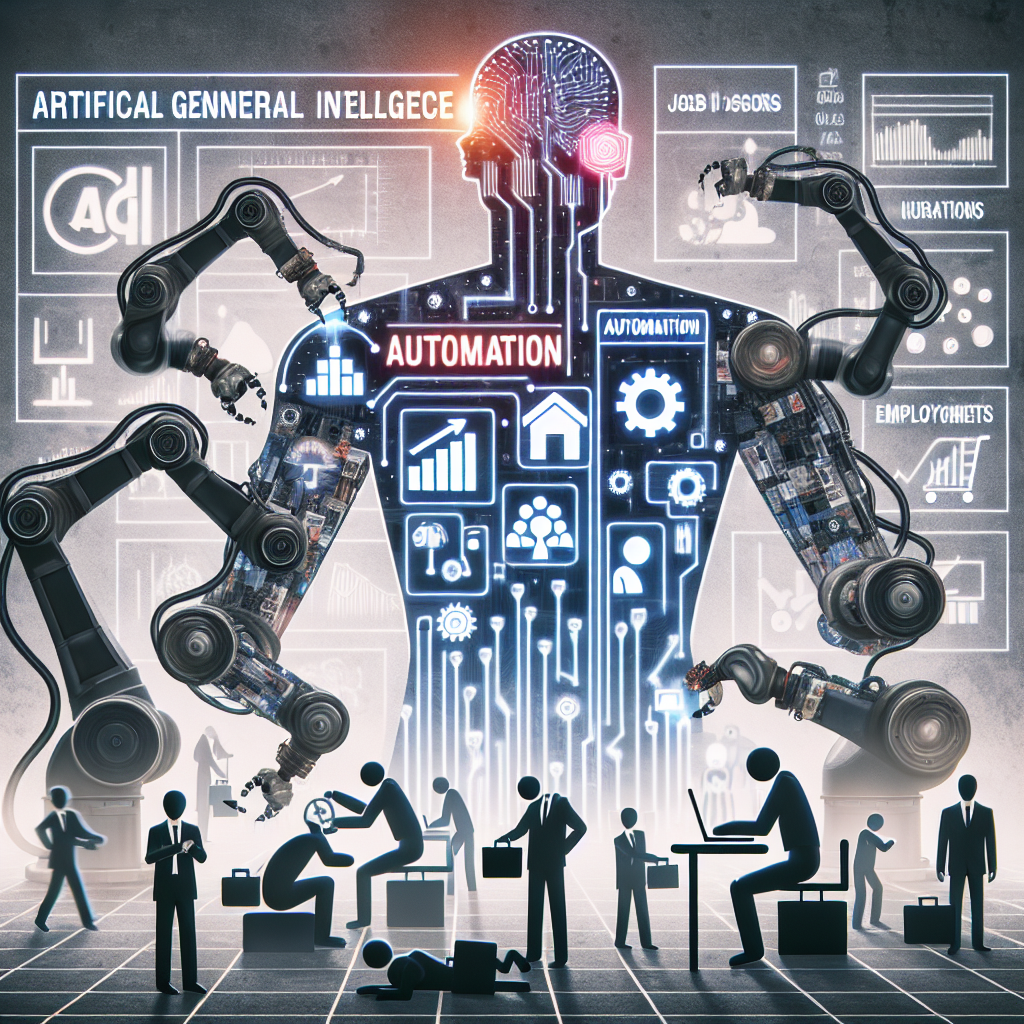Artificial General Intelligence (AGI) is a term that refers to machines that possess the ability to understand, learn, and apply knowledge across a wide range of tasks. As technology continues to advance at a rapid pace, the question of how AGI will impact the job market has become a topic of much debate. Will automation lead to job losses or gains? This article will explore the potential implications of AGI on the job market and provide insight into how workers and industries may need to adapt to this new technological frontier.
The Impact of AGI on the Job Market
The advent of AGI has the potential to revolutionize the way we work and the types of jobs that are available. On one hand, automation and AI technologies have already begun to replace some traditional jobs, such as manufacturing and administrative roles. As AGI becomes more advanced, it is likely that even more jobs will become automated, leading to potential job losses in certain industries.
However, it is important to note that automation does not necessarily lead to widespread job losses. In fact, many experts believe that AGI has the potential to create new job opportunities and transform existing industries. For example, AGI could be used to enhance productivity and efficiency in sectors such as healthcare, finance, and transportation, leading to increased demand for skilled workers in these fields.
Additionally, AGI has the potential to create entirely new industries and job roles that do not currently exist. For example, the development of AGI could lead to increased demand for data scientists, AI engineers, and other tech-related roles. As AGI becomes more prevalent, workers will need to adapt and acquire new skills to remain relevant in the job market.
Overall, the impact of AGI on the job market is likely to be a combination of job losses and gains. While automation may lead to the displacement of some workers, it also has the potential to create new job opportunities and drive economic growth in the long term.
Adapting to the Age of AGI
As the age of AGI approaches, workers and industries will need to adapt to the changing landscape of the job market. This may involve acquiring new skills, retraining workers for new roles, and embracing technological advancements in the workplace.
One way that workers can prepare for the age of AGI is by acquiring skills that are in high demand in the tech industry. This may include learning programming languages, data analysis, and other technical skills that are essential for working with AGI technologies. Additionally, workers may need to develop soft skills such as critical thinking, creativity, and adaptability to remain competitive in the job market.
Industries will also need to adapt to the age of AGI by investing in technology and innovation. This may involve implementing AI technologies in the workplace, reimagining business models, and creating new products and services that are powered by AGI. By embracing technological advancements, industries can stay ahead of the curve and remain competitive in the global market.
FAQs
Q: Will AGI lead to widespread job losses?
A: While automation may lead to job losses in certain industries, AGI also has the potential to create new job opportunities and transform existing industries.
Q: What skills will be in high demand in the age of AGI?
A: Skills such as programming, data analysis, and critical thinking will be essential for working with AGI technologies.
Q: How can workers prepare for the age of AGI?
A: Workers can prepare for the age of AGI by acquiring new skills, retraining for new roles, and embracing technological advancements in the workplace.
Q: How can industries adapt to the age of AGI?
A: Industries can adapt to the age of AGI by investing in technology and innovation, implementing AI technologies in the workplace, and creating new products and services that are powered by AGI.

